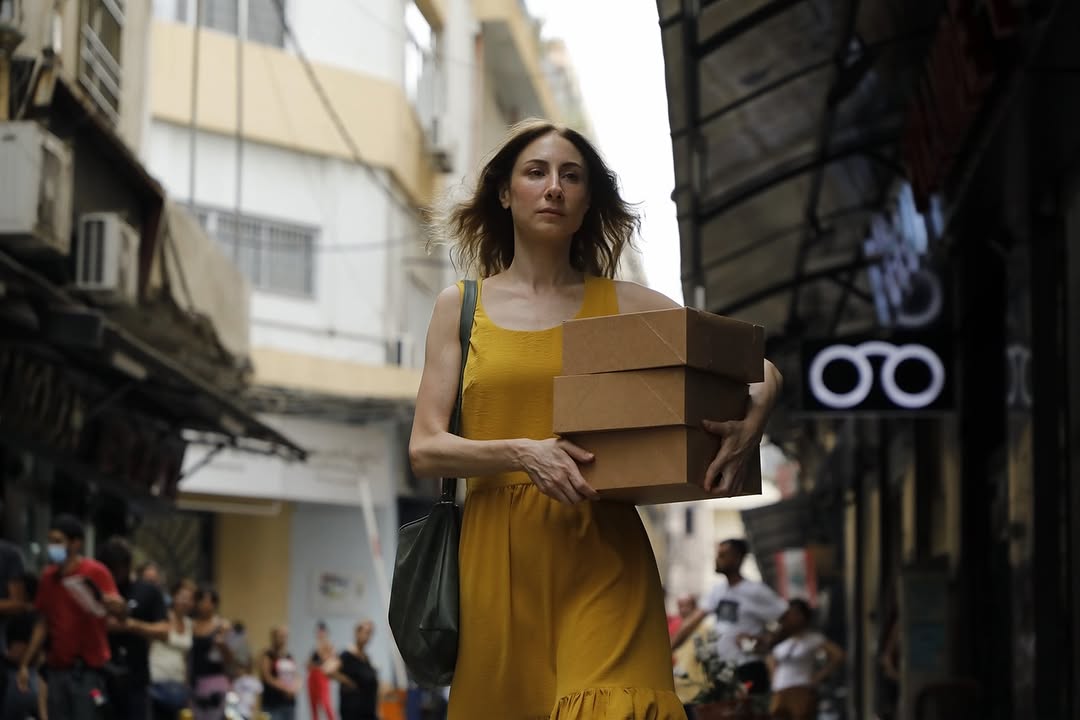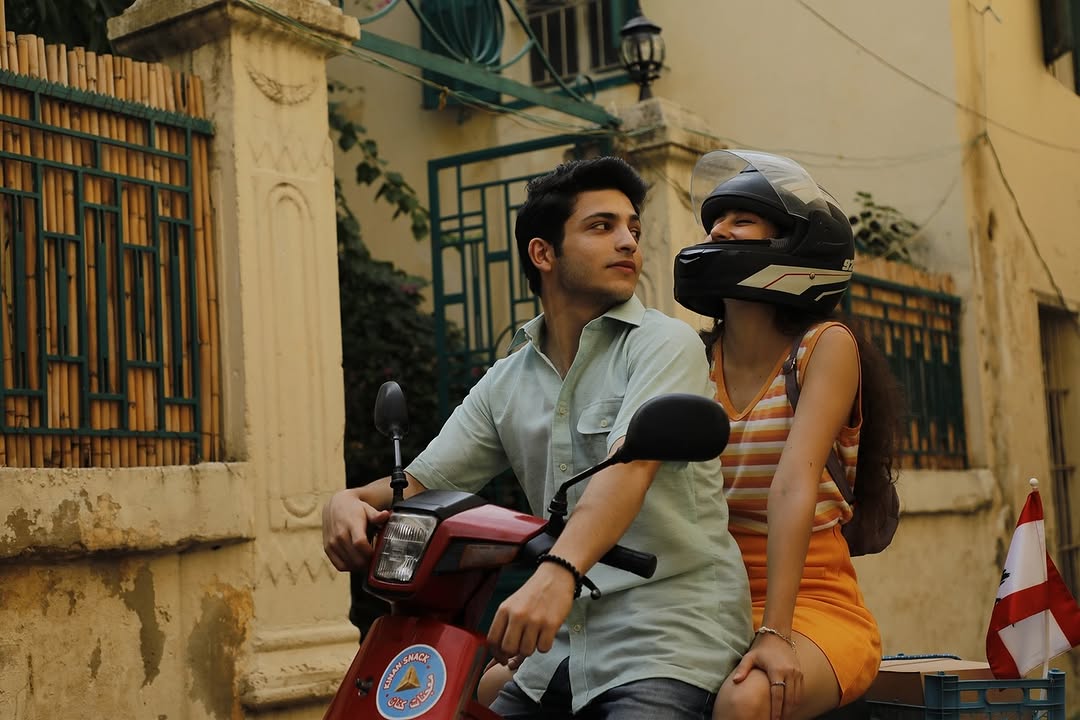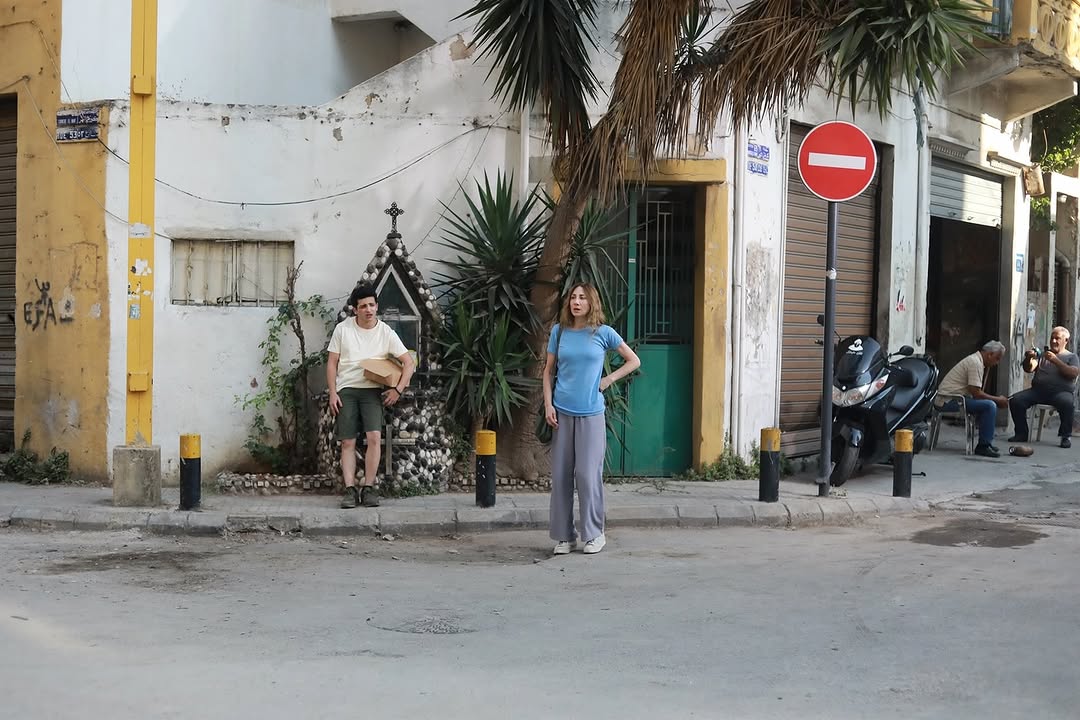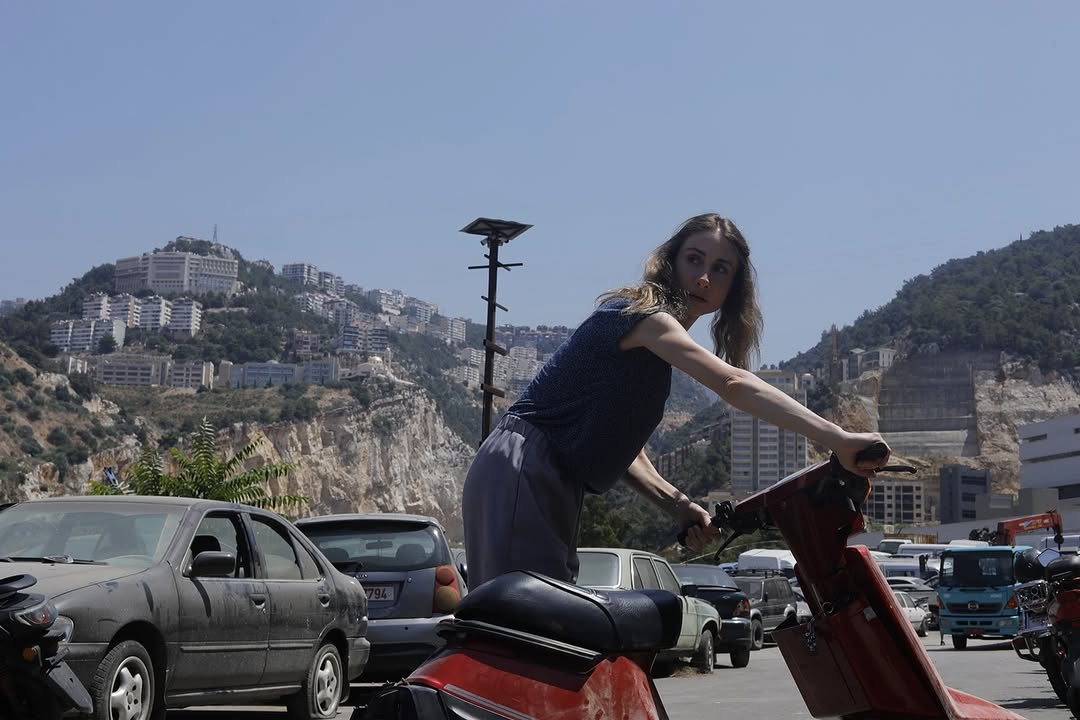Newsfeed

Beirut—a city where sometimes just crossing one street can feel like stepping into another world— notoriously operates under a patchwork confessional political system, or perhaps the lack thereof. Corrupt political parties, bombardment, economic crises, and the lingering shadows of the civil war hang in the air, forming a reality that the Lebanese are prepared to recount explicitly when needed. And no one knows this truth better than those who have experienced it first-hand.
In the film Arzé, directed by Mira Shaib (MS), that reality unfolds through the story of a widowed mother named Arzé who struggles to provide for her two children in a city where survival feels like a daily negotiation. When their only means of livelihood—a scooter—is stolen, Arze and her teenage son, Kinan, embark on a desperate journey across Beirut’s sectarian neighborhoods to retrieve it. As they navigate through the city, the journey unearths hidden family secrets and forces them to confront the societal divides and personal sacrifices that define their lives.
Arzé, Lebanon’s Oscar submission for Best International Feature Film, feels like a tribute—a kiss on the forehead to the countless individuals in the region who dream of a united Lebanon. The film stars Diamand Abou Abboud as Arzé, whose performance earned her the Best Actress award at the Asian World Film Festival, alongside renowned comedian Shaden Fakih and Bilal Al Hamwi, who plays her teenage son, Kinan. Since its release in June last year, Arzé has wowed audiences worldwide, winning accolades such as the Youssef Sherif Rizkallah Award for Best Screenplay and Best Debut Feature at the Arab Film Festival.
As Mira herself continues to champion and pave the way for the unique voice of Arab cinema, GRAZIA spoke with the acclaimed director to discover how she and fellow filmmakers navigate resilience, shared humanity and cultural authenticity. She shared her favourite film, hopes for greater trust in women’s stories and the creative strategies indie films can use to reach wider audiences.
In Arzé, you’ve chosen to tell a distinctly Lebanese story. What aspects of Lebanese culture or everyday life did you want to highlight? Were there any cultural symbols or metaphors woven into the narrative?
MS: ‘Resilience’ is a word many of us Lebanese are tired of hearing. After every tragedy, we’re expected to rise again—and we do, without a doubt! But we don’t want to take that for granted. Yes, we are resilient, but we are also defined by our incredible sense of humour, which is essential to our resilience. Humour is what helps us navigate the darkest moments. I want Arze to be a reminder of that.
I also want to highlight the vibrancy of our people, our streets, and our culture. Lebanon may be a small country, but it has so much to offer the world. Our differences are not something to be feared, but rather something to be celebrated, as they create a kaleidoscope of culture that is anything but boring. The richness of our diversity makes us unique—and that is our strength.
Despite our differences, we share so much in common—we listen to the same music, eat the same food, and hold the same hopes, superstitions, and fears. This is why we included spinach pies in the film; they are something everyone loves, a simple yet powerful symbol of our shared culture.
Another, less obvious symbol is the eye bead amulet, which we see in each place Arze visits. These amulets are everywhere in Lebanon, believed by everyone to protect us from the evil eye. They coexist alongside religious symbols of both Christians and Muslims, reflecting the deeply ingrained spiritual practices we have in common, even amid our differences.

Cinema has always been a mirror and a catalyst for change. What broader message do you hope audiences take away from Arze?
MS: I hope Arze sparks many conversations, but above all, I want it to show that the differences we often focus on—those that seem to separate us—are far less significant than what unites us. Societal divisions aren’t unique to Lebanon or the Arab world. While sectarianism divides Lebanon, similar divides exist in India, Syria, and Northern Ireland; in the United States, it’s racial; and in Belgium, linguistic.
For me, the goal is for audiences to leave Arze with a realization that, despite our differences, we are all in the same boat—and that boat is sinking. If we don’t look beyond these superficial divides, we all risk going down together. I want people to understand that we must reclaim our future, just as Arze does in the film—taking back what has been stolen from us and the generations to come.
Lebanese cinema’s golden age emerged during the civil war, with conflicts often taking center stage. Beyond these narratives, what other genres or themes do you think Lebanese filmmakers can excel in to achieve greater regional and international recognition?
MS: Lebanese cinema, both during and after the war, has often focused on themes of conflict, displacement, exile, and loss. However, I believe Lebanese cinema, along with the broader film industries of West Asia and North Africa, has the potential to shine in genres beyond the traditional focus on poverty and war.
Family dramas, coming-of-age stories, and love tales are universally relatable and have a broad global appeal. Comedy, particularly that which highlights cultural quirks, as well as thrillers and psychological dramas, can also capture attention and expand audiences. With comedy, especially, it’s easier to reach a wider viewership. These genres offer a powerful way to address social issues, women’s stories, and taboos that are often difficult to express in more conventional narratives.

Arab films possess a unique voice, offering narratives rooted in culture and identity. What qualities or themes do you believe define our “special sauce” and set Arab cinema apart on the global stage?
MS: Our films explore themes of identity, resilience, displacement, and family dynamics, capturing the complex realities of our societies. What I find most compelling is the authenticity that emerges from our cinemas. Each film is a learning experience, offering insights into the cultural nuances of the Arab world that we may not have been aware of or fully understood before.
It’s fascinating to witness both the shared histories and traditions that connect us, as well as the differences that make our stories so unique—providing a rich, multifaceted perspective on who we are as diverse, multi-ethnic, multi-religious, and multi-linguistic cultures.
What is your perspective on the future of cinema in the region? What key changes or steps do you think are necessary to foster its growth and ensure its sustainability?
MS: I don’t use the colonial, geopolitical term ‘Middle East,’ as it oversimplifies the rich, complex history of the region and removes us from the continents we are on. So, to answer your question: the film industries in West Asia and North Africa are growing rapidly, with increasing support and new opportunities emerging each year.
One of the aspects I’m most excited about is the rise of films by women directors—a trend I hope will continue to grow. More trust in women’s talent and stories is crucial, especially considering that Arab women like Aziza Amir, Assia Dagher, and Herta Gargour were pioneers who laid the foundations of our film industries a century ago.
Equally important is the need to support and invest in young filmmakers. Their fresh, bold ideas are the future of our cinema, and they deserve more recognition and resources. The stories coming from the Arab world are rich, authentic, and deeply powerful. With the right funding and distribution channels, they have the potential to resonate globally.

Indie films often attract niche audiences, and traditional cinemas increasingly rely on big blockbusters to draw viewers. In this environment, how can independent cinema gain more visibility and resonate with broader audiences?
MS: It’s true that indie films often attract smaller, niche audiences—typically cinephiles or those deeply invested in specific cultural or social issues. This is largely because mainstream distributors are looking for more mainstream, generic stories while independent cinema tends to focus on more personal and intimate storytelling. Indie films are made by filmmakers working outside the traditional studio system so their access to the mainstream industry, especially in our region, is often limited. Independent cinema offers a more thought-provoking, nuanced viewing experience, and, because it’s typically not driven by profit, it allows for stories that might otherwise go untold. These films often excel in terms of inclusivity and representation, giving voice to perspectives that are underrepresented in mainstream media. Additionally, because indie films usually operate with smaller budgets, they often lack the resources for large-scale marketing or wide distribution.
To make independent cinema more accessible to a broader audience, we need to bridge the gap between niche and mainstream. One way to do this is by increasing the visibility of indie films through accessible platforms like streaming services, local film festivals, and community screenings. This would allow these films to reach new and diverse audiences. Moreover, collaboration between independent filmmakers and mainstream distribution channels could help bring indie films to larger theaters. Ultimately, it’s about creating opportunities for indie cinema to be appreciated and celebrated by both dedicated film lovers and the general public, showing that there’s space for all kinds of stories in the cinematic landscape.
What is your favorite Arab film from the past few years, and what made it stand out to you?
MS: A recent film that truly stood out to me is To A Land Unknown by Mehdi Fleifel, which I saw at the Arab Film Festival in San Francisco. What made it so powerful was its honest and heartfelt portrayal of male friendship. The bond between the characters is both comforting and complex, revealing moments of vulnerability that are rarely seen in stories about men from the Arab world. The performances felt raw and authentic, and the acting was outstanding.
What I also appreciated about the film is that this was not the stereotypical refugee story often told by Europeans. This is what made it resonate so deeply. Fleifel’s unique perspective captured the cultural specificities of Arab men—their yearning for a better future outside a broken region and their deep commitment to families left behind—elements that only someone who has lived these experiences could truly portray. The ending completely shattered my heart, but it felt inevitable, the only way it could have ended. It was the perfect conclusion to a deeply emotional and thought-provoking story.








